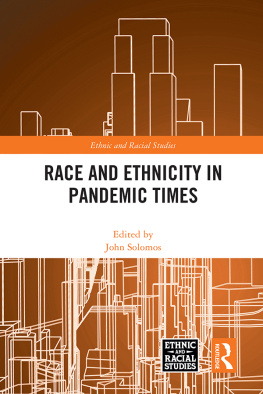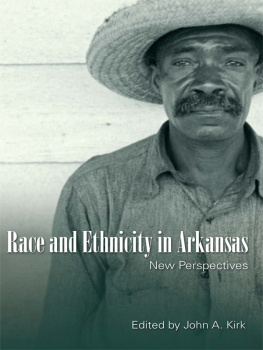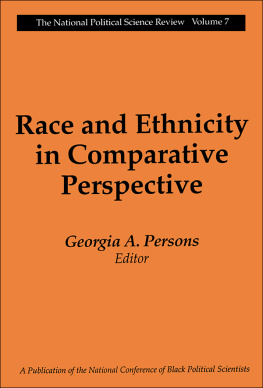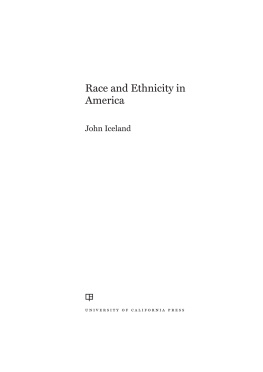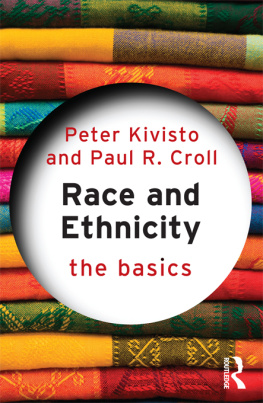John H Stanfield II - Rethinking Race and Ethnicity in Research Methods
Here you can read online John H Stanfield II - Rethinking Race and Ethnicity in Research Methods full text of the book (entire story) in english for free. Download pdf and epub, get meaning, cover and reviews about this ebook. year: 2011, publisher: Taylor & Francis, genre: Politics. Description of the work, (preface) as well as reviews are available. Best literature library LitArk.com created for fans of good reading and offers a wide selection of genres:
Romance novel
Science fiction
Adventure
Detective
Science
History
Home and family
Prose
Art
Politics
Computer
Non-fiction
Religion
Business
Children
Humor
Choose a favorite category and find really read worthwhile books. Enjoy immersion in the world of imagination, feel the emotions of the characters or learn something new for yourself, make an fascinating discovery.

- Book:Rethinking Race and Ethnicity in Research Methods
- Author:
- Publisher:Taylor & Francis
- Genre:
- Year:2011
- Rating:4 / 5
- Favourites:Add to favourites
- Your mark:
- 80
- 1
- 2
- 3
- 4
- 5
Rethinking Race and Ethnicity in Research Methods: summary, description and annotation
We offer to read an annotation, description, summary or preface (depends on what the author of the book "Rethinking Race and Ethnicity in Research Methods" wrote himself). If you haven't found the necessary information about the book — write in the comments, we will try to find it.
Rethinking Race and Ethnicity in Research Methods — read online for free the complete book (whole text) full work
Below is the text of the book, divided by pages. System saving the place of the last page read, allows you to conveniently read the book "Rethinking Race and Ethnicity in Research Methods" online for free, without having to search again every time where you left off. Put a bookmark, and you can go to the page where you finished reading at any time.
Font size:
Interval:
Bookmark:

Editor

2 Park Square, Milton Park, Abingdon, Oxon OX14 4RN
711 Third Avenue, New York, NY 10017, USA
Product or corporate names may be trademarks or registered trademarks, and are used only for identification and explanation without intent to infringe.
p. cm.
Includes index.
ISBN 978-1-61132-000-8 (hbk.: alk. paper) ISBN 978-1-61132-001-5 (pbk.: alk. paper)
1. Ethnic relationsResearch. 2. Race relationsResearch. 3. EthnologyMethodology.
4. SociologyMethodology. II. Stanfield, John H.
GN496.R46 2011
305.80072dc22
ISBN 978-1-61132-001-5 paperback
| Epistemological Reconsiderations and New Considerations: Or What Have I Been Learning since 1993, John H. Stanfield, II |
| Holistic Restorative Justice Methodology in Intercultural Openness Studies, John H. Stanfield, II |
| , Teun A. van Dijk |
| The Transformation of the Role of "Race" in the Qualitative Interview: Not If Race Matters, But How?, Eileen O'Brien |
| Exposing Whiteness Because We Are Free: Emancipation Methodological Practice in Identifying and Challenging Racial Practices in Sociology Departments, Elizabeth Hordge-Freeman, Sarah Mayorga, and Eduardo Bonilla-Silva |
| , Mary Jo Deegan |
| Researching Race and Ethnicity:(Re)Thinking Experiments, Henry A. Walker |
| Multiple Methods in Research on Twenty-First-Century Plantation Museums and Slave Cabins in the U.S. South, Stephen Small |
| Small-Scale Quantitative and Qualitative Historical Studies on African American Communities, Yvonne Walker |
| Quantifying Race: On Methods for Analyzing Social Inequality, Quincy Thomas Stewart and Abigail A. Sewell |
| Rehumanizing Race-Related Research in Qualitative Study of Faith-Based Organizations: Case Studies, Focus Groups, and Long Interviews, Dawn B. Brotherton |
| Psychohistory: The Triangulation of Autobiographical Textual Analysis, Archival and Secondary Historical Materials, and Interviews, John H. Stanfield, II |
| Bush, Volvos, and 50 Cent: The Cross-National Triangulation Challenges of a "White" Swede and a "Black" American, L. Janelle Dance and Johannes Lunneblad |
| Weberian Ideal-Type Methodology in Comparative Historical Sociological Research: Identifying and Understanding African Slavery Legacy Societies, John H. Stanfield, II |
Font size:
Interval:
Bookmark:
Similar books «Rethinking Race and Ethnicity in Research Methods»
Look at similar books to Rethinking Race and Ethnicity in Research Methods. We have selected literature similar in name and meaning in the hope of providing readers with more options to find new, interesting, not yet read works.
Discussion, reviews of the book Rethinking Race and Ethnicity in Research Methods and just readers' own opinions. Leave your comments, write what you think about the work, its meaning or the main characters. Specify what exactly you liked and what you didn't like, and why you think so.

